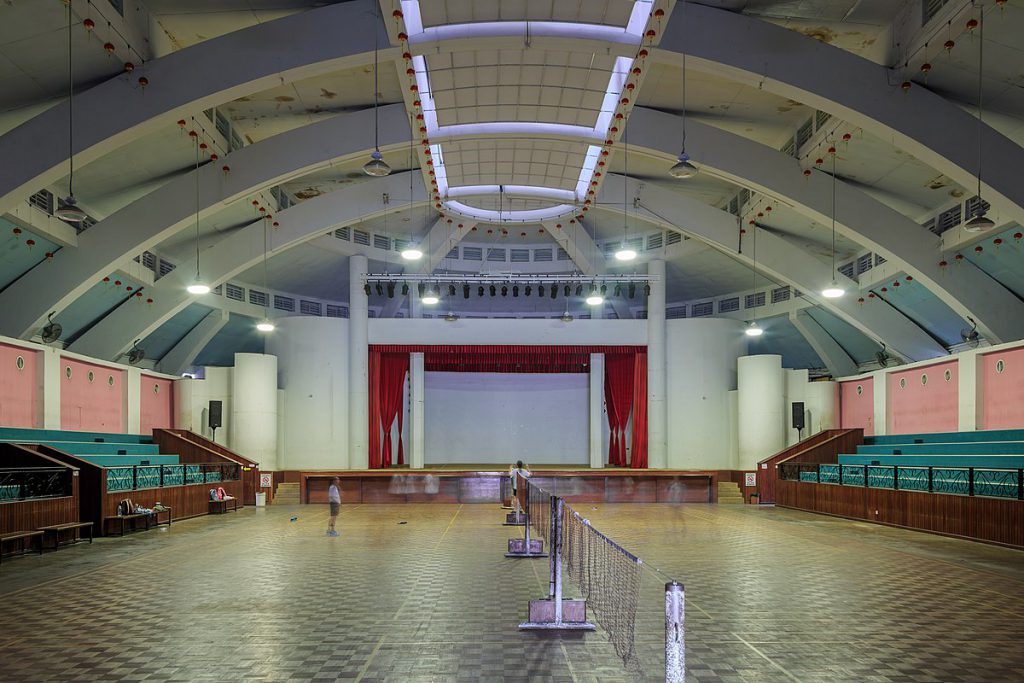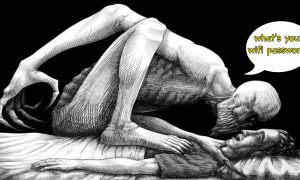P. Ramlee: hated in life, loved in death. Here’s why we don’t deserve him
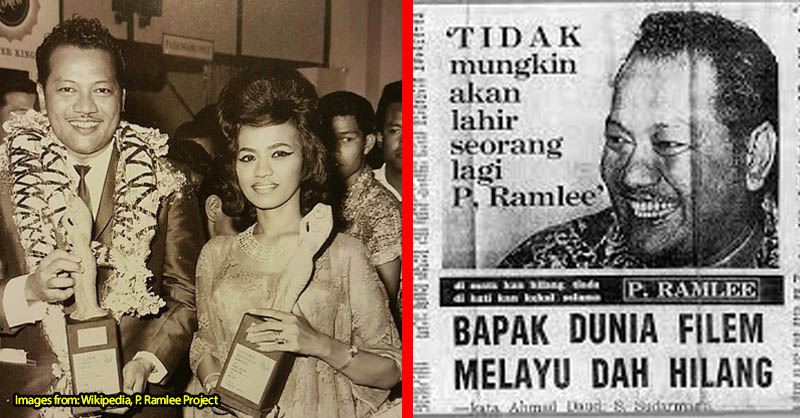
There are few Malaysian artists, if any, who achieved the soaring heights of the late Tan Sri P. Ramlee. The man was a phenomenon, and there was nothing he could not do: he was an actor, singer, director, writer, editor, musician, composer, and, if some stories are to be believed, even a spiritual healer (though his son Nasir has denied this).
But sadly, despite his staggering contribution to Malaysian arts, he was shunned by the public near the end of his life, and died while starved of artistic gratification.
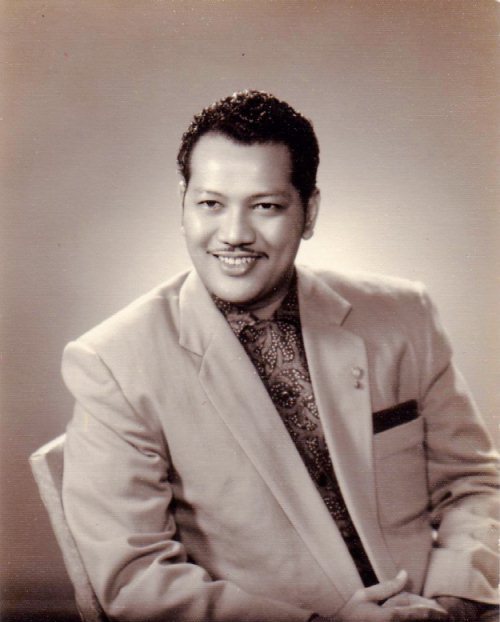
It is debated if P. Ramlee actually died financially poor, but he was abandoned by the industry near his death. Image from: Wikipedia
Yes, one lesser-known fact that history tries to airbrush over is that while P. Ramlee is universally celebrated by Malaysians today, close to the end of his life, he was considered a has-been, had his image destroyed by the media, and was seen as an outcast in the arts industry. In fact, it was so bad that…
P. Ramlee was once booed off the stage by a local crowd
Many people accused of “masterminding” the downfall of P Ramlee’s career have never admitted to it, but it’s largely accepted that the motive was jealousy. While any attempts to badmouth him weren’t initially successful due to his star power, the cracks started to appear when he was dropped by Shaw Brothers, who largely produced his movies, when he was allegedly an outspoken supporter of union rights for film industry workers.
And off the big stage, he fared no better: he was let go by his record label, and was turned away at every corner for jobs. He could only land smaller gigs like singing at weddings with his wife Saloma, and judging at acting competitions. Reportedly, he even started a mahjong shop to make some money.
Believe it or not, in the early 1970s, during ‘Malam Tiga Ramli’ (called so because the performers were P. Ramlee, A. Ramlie, and L. Ramli) at Stadium Chin Woo, KL, P. Ramlee received the worst reception a performer could ever get: an entire auditorium booing during your performance.
According to Malaysian pop singer Jamal Abdillah, who was present at the event as a teen:
“When P. Ramlee appeared on-stage, he was booed. Fans could no longer accept his music at the time, despite his big-name status in the arts industry. That scared me.” – Jamal Abdillah, in an interview with mStar Online (translated from BM by Cilisos)
To make matters worse, the press, allegedly fueled by jealous parties in the industry, continued to slaughter him in the news, further degrading his public image:
“P. Ramlee was disillusioned with reporters. Even for me, it was difficult to see him. When a few journalists arrived, he walked out of the studio. “ – Mustafa A. R., in an interview with History Channel
In the filmmaking world, he fared no better, because…
He was denied his dream of directing the first-ever Malay color film
Throughout his life, P. Ramlee’s greatest goal in filmmaking was to make the first Malay color film. To realize this goal, he co-founded PERFIMA in 1970 to spearhead the local film industry in this direction.
However, when the time came to select the head of the first Malay color film, PERFIMA passed on Ramlee, opting instead for his co-founder Jins Shamsuddin, whom they believed was better equipped with the necessary skills.
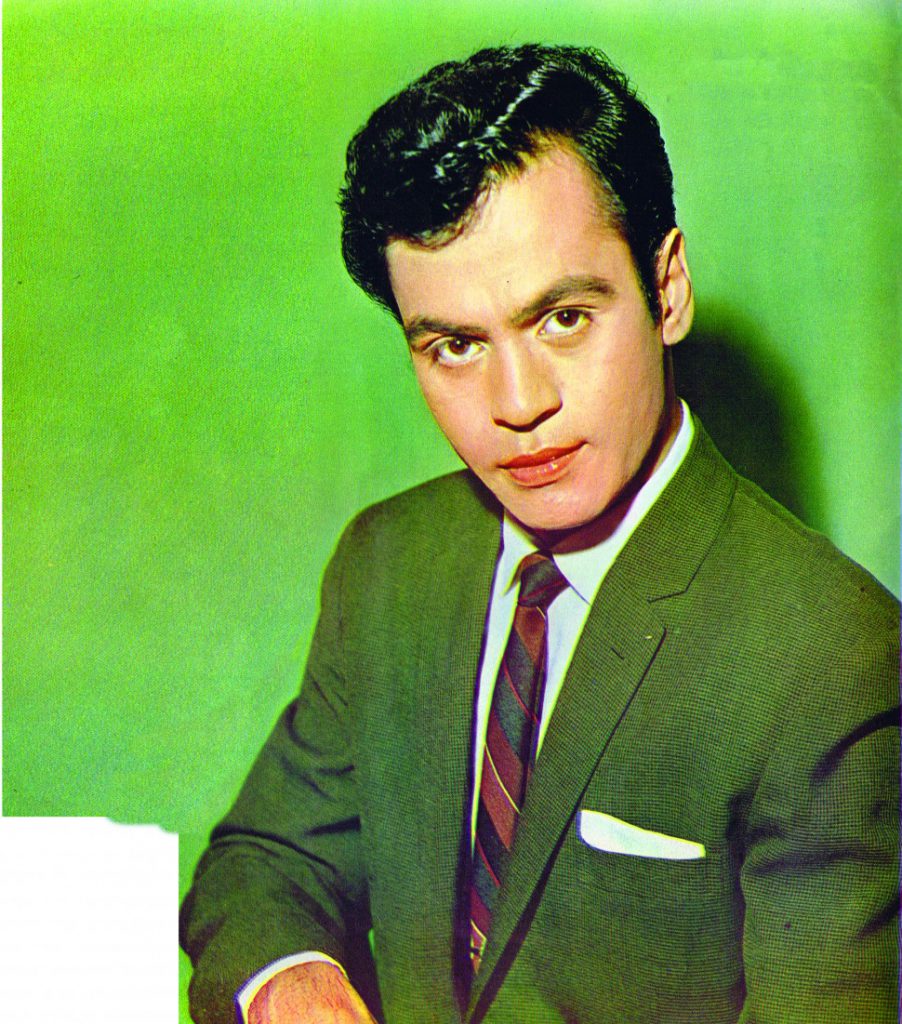
Jins Shamsuddin, who at the time, had just come back from film school in London. Image from: Going Places
Heartbroken, Ramlee fell into a severe depression, as witnessed by those closest to him:
“People no longer care about me, my career, no one likes me anymore. I’m already old, I’m already old. I want Malay films to be better, just like overseas, but it wasn’t to be. I’m disappointed.” – P. Ramlee, as quoted by his sister-in-law Mariani in an interview with History Channel
But worst of all, and perhaps the biggest kick in the teeth for P. Ramlee was that…
Towards the end of his life, he was more celebrated overseas than back home
To understand just how appreciated he was outside Malaysia, one only has to look up his Wikipedia page to see all the accolades he’s won, most notably from film festivals in Tokyo, Manila, Hong Kong, and Berlin. In fact, he was so good that he was the first recipient of a Tokyo Film Festival award category created specially for him: Most Versatile Talent.
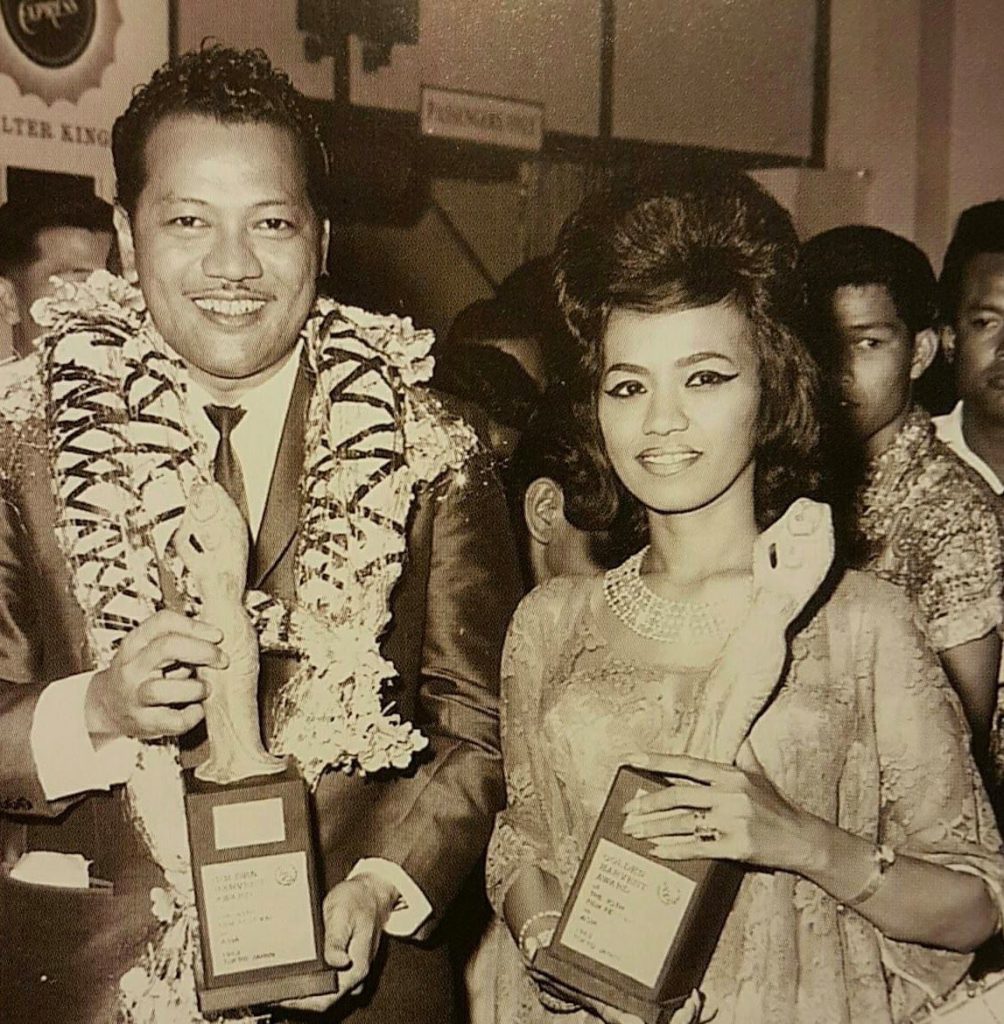
P. Ramlee with his wife Saloma, celebrating their respective awards at the Tokyo Film Festival 1963. Image from: Twitter user @mubimy
But when his film Laksamana Do Re Mi was nominated at the 1973 Asia Pacific Film Festival in Singapore, Ramlee was given the cold shoulder by other Malaysian artists in attendance. Amazingly, it was the foreign stars who were queueing up to meet him:
“When P. Ramlee arrived, no one stood up or offered a seat at the Malaysian contingent’s seating area. Then he saw me and sat behind me at the Singapore delegates’ section. None of the foreign stars and actors looked for any of us local actors. But they were looking and asking for P. Ramlee. Hong Kong actors, Indonesians, even Bing Slamet (Indonesian singer and actor) was looking for him.” – Aziz Sattar, Singaporean actor, Ramlee’s friend and former co-star, in an interview with History Channel
Sadly, this was to be his last film festival, and he died that same year of a heart attack.
P. Ramlee’s tragic end is a reminder of the struggles artists face, even today
We may celebrate him now, but it is shocking to remember that once upon a time, P. Ramlee was so unwanted that no one wanted to hire him. After his death, it was alleged that Saloma could not afford to pay for his funeral, and his family was so penniless that his son Nasir had to start an illegal nasi lemak and fruits stall to make ends meet, sometimes being harassed by DBKL for it.
Ramlee’s family’s dire situation at the time is probably best captured through this quote from his widow Saloma to his son Nasir after his death:
“Nasir, this is all I have (RM40), I’ll take RM20 and you take RM20, don’t be angry, I really have no money.” – Saloma to Nasir, as quoted from Nasir’s autobiography ‘Bapaku P. Ramlee’ (translated from BM by Cilisos)
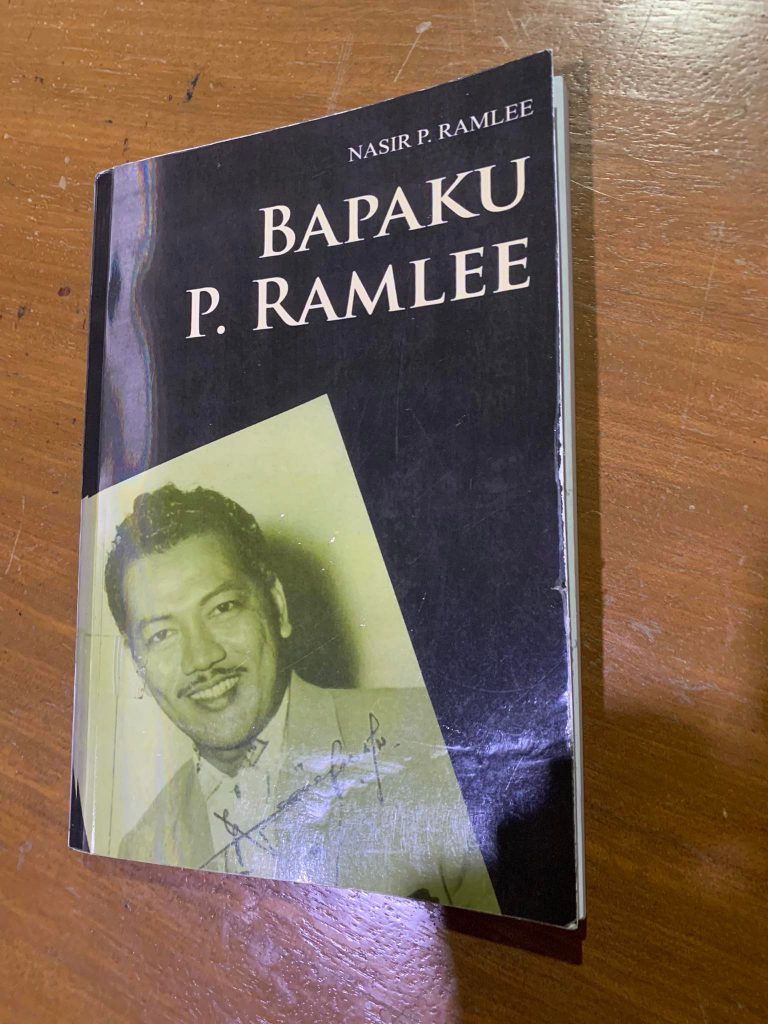
Our copy of Nasir’s autobiography ‘Bapaku P. Ramlee’
Perhaps the lesson to be taken from all of this is to treasure what you have before it’s gone, and to appreciate our artists, because behind all the glitz and glamor, they work hard to put food on the table as well.

